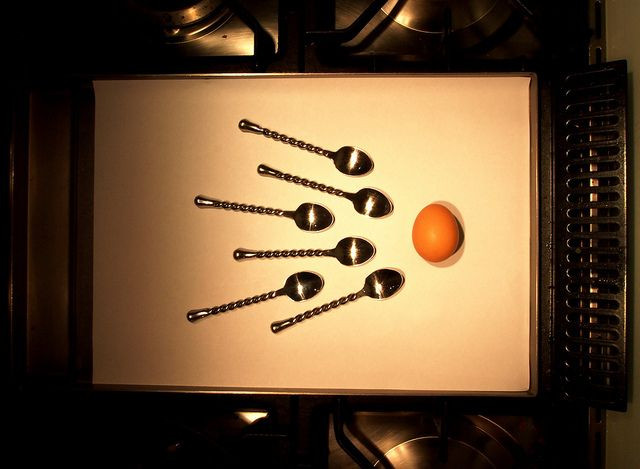With A Surplus, Denmark-Based Cryos International Hopes Its Sperm Donation Will Help Fight The World's Shortage

This may seem hard to believe, but the world is currently suffering from a shortage of sperm. Britain has been short for more than a year now; as of September, it's only had nine registered donors this year. But there may be one company that can bring the world out of its shortage, and help those who are looking for sperm donations: Cryos International.
Ole Schou is in charge of Cryos International, a place where quality and quantity go hand-in-hand. Nearly 1,000 donors, who are paid $15 to $76 per sperm deposit, have created one of the largest sperm banks in the world. The Denmark-based company turns those donations around and sells them for $45 to $1,137, depending on the "potency and donor profiles," CNN Money reported. "We export 96 percent of our production," Schou said. "We're like a kind of factory. Volume and quality is important."
Cryos, which sends vials of sperm to over 80 countries, has helped produce more than 27,000 babies worldwide. Such high numbers come from a demand from older, single women across the globe. "The highest growth comes from single women who make up about 50 percent of demand," Schou said. "We expect within the next five years they may stand for as much as 70 percent of demand."
There’s a worldwide sperm shortage because donors are hard to come by. "The hard part is recruiting them," Laura Witjens, head of the UK National Sperm Bank, told CNN Money. Though there are some entrepreneurial spirits out there who spread their seed freely, most men find it hard to step inside a donation center and donate.
There's a common misconception that donating sperm is easy — you walk into the center, do the deed, collect your check, and leave. But the reality is much different. In fact, the time commitment that it takes to donate is what scares many men away. Donors are generally required to visit the donation center twice a week over a period of months, and they have to abstain from sex, alcohol, smoking, and drugs for the entire time. "It's more of a 'job' than it sounds like," Kimberly Krawiec, a professor at Duke University, who studies the global markets for sperm, eggs, and surrogacy, told CNN Money.
The business is booming in surplus nations like Denmark, which is handing out sperm to countries, like the United States, UK, China, New Zealand, and Israel — all of which are suffering from shortages. Since there are no regulations on the industry, there aren’t any limits on how many women can get one man’s sperm. Schou predicts that one man who donates to Cryos International will have fathered up to 25 children.



























